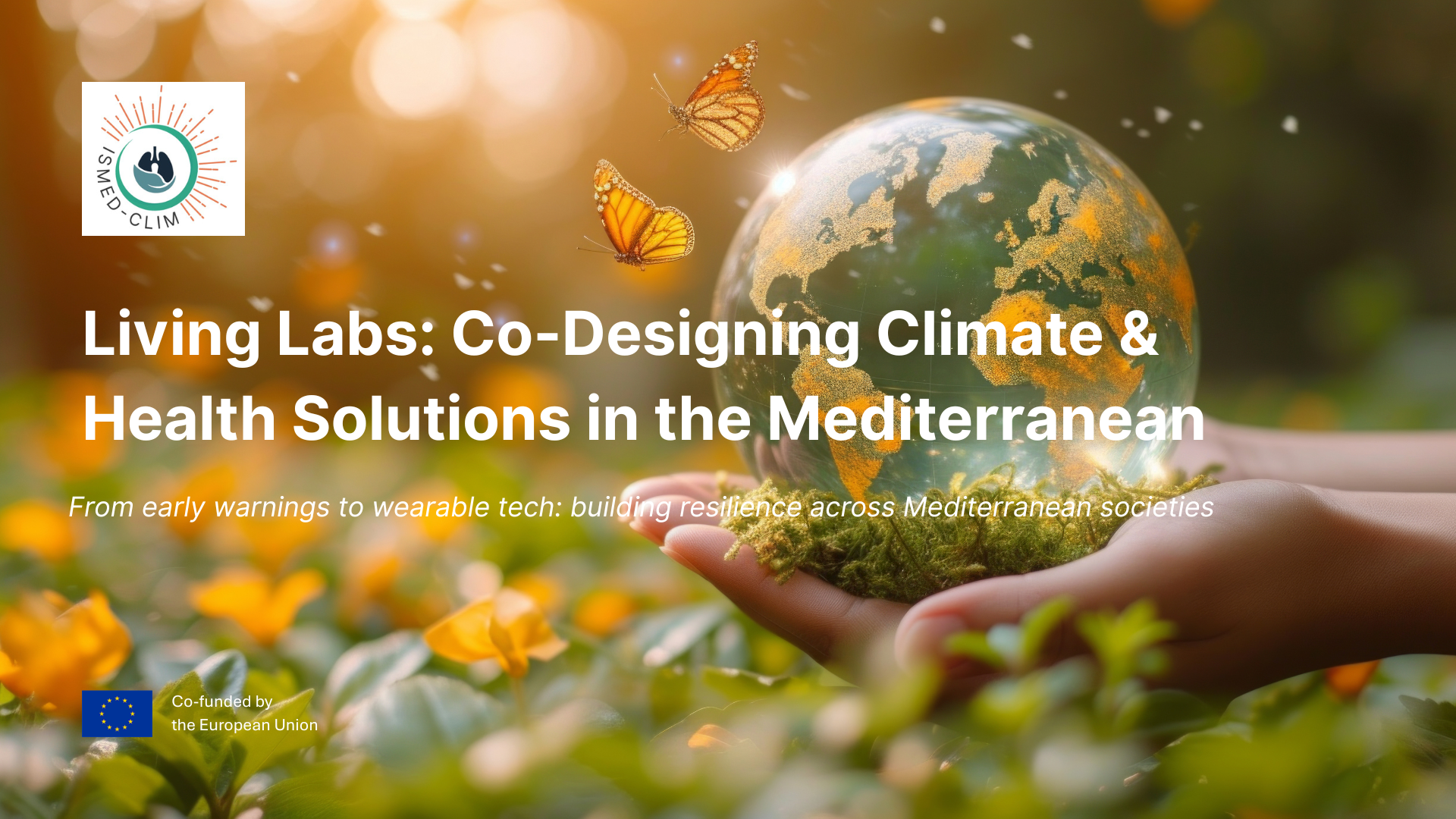Living Labs: Co-Designing Climate & Health Solutions in the Mediterranean
The ISMED-CLIM project brings together digital innovation and community engagement to strengthen climate and health resilience across the Mediterranean. Given the region’s increasing exposure to extreme heat, air pollution, and vector-borne diseases, the project focuses on practical tools and partnerships rather than abstract theory.

What Are ISMED-CLIM Living Labs?
ISMED-CLIM operates five Living Labs across eight Mediterranean sites, dynamic, real-world environments where researchers, healthcare professionals, policymakers, and citizens work together to test and refine climate-health interventions. These labs target specific vulnerable groups, including outdoor workers, pregnant women, older adults with hypertension, and professionals at risk from vector-borne diseases, ensuring solutions are tailored and effective.
Technology & Tools Deployed in Living Labs
The Living Labs test a carefully curated suite of digital tools, including:
-
AI-augmented early warning and response systems (EWRS) that continuously model and predict risks from heat stress, air pollution, and disease vectors.
-
A Citizen Mobile App that delivers personalized alerts, mitigation advice, and real-time exposure tracking, enhanced via wearable sensors.
-
A Policy Dashboard offering interactive visualizations and evidence-informed policy support for decision-makers.
-
A Digital Knowledge Platform, which aggregates Living Lab data, health outcomes, and forecasting models.
-
Integrated surveillance tools that blend environmental, climate, and vector population data to predict zoonotic disease outbreaks.
-
A Living Labs Management Portal supporting coordination, data collection, and intervention evaluation across demonstration sites.
From Pilots to Replication
Beyond the Living Labs, ISMED-CLIM will demonstrate solutions in eight pilot sites and scale them further through ten replication sites across Cyprus, Greece, Italy, Spain, and Portugal. This structure ensures that tools are validated in real-world contexts and then adapted for broader use in diverse healthcare and policy settings.
Conclusion
By embedding innovation in real contexts, ISMED-CLIM’s Living Labs show how digital solutions can be adapted to local realities while supporting wider regional strategies. They bring together citizens, health professionals, and policymakers in a shared effort to reduce climate-related health risks. The lessons and data collected will not only strengthen healthcare preparedness in the Mediterranean but also provide a foundation for future adaptation strategies across Europe.
